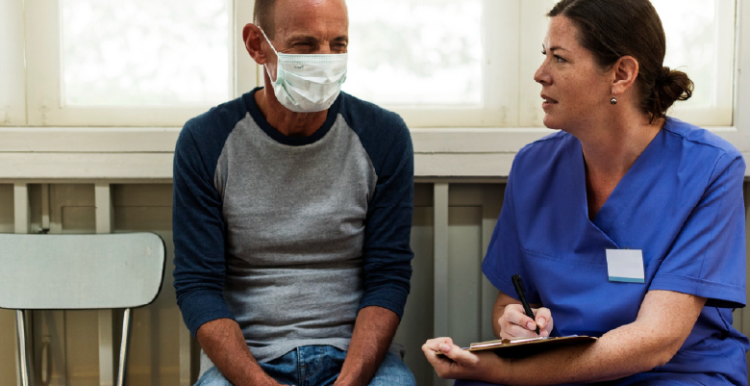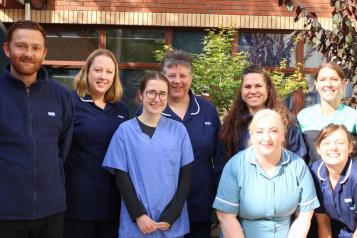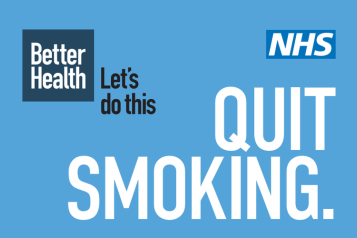NHS Addiction Services: Supporting patients in Dorset

In September 2024, our report Voiceless, unheard and socially excluded highlighted the concerning disparities in health outcomes for people experiencing homelessness. We’d spoken to people with addictions who told us that they are discharging themselves from hospital because the withdrawal symptoms from drugs or alcohol are often poorly managed. Our report recommended that hospital staff are supported and trained to provide services that are person-centred, empathetic and non-judgemental to address health inequalities.
Lucy caught up with Graeme to find out if any changes have been made locally. Here's what he had to say.
Please tell us about your role
"My professional background is mental health nursing, specialising in addiction nursing. Over the last 30 years, I have worked in several different roles around the country, including primary care, secondary care mental health trusts, commissioning and secondary care acute.
"I've been the Head of Addiction Services for 14 years, starting with the former Poole Hospital NHS Trust. Following the merger that formed University Hospitals Dorset NHS Trust, I was appointed in a project manager/clinician role to scope the organisation’s needs and to deliver a clinical service to patients coming into hospital because of their alcohol use.
"I was initially a lone worker and over the years have seen the team grow gradually to 18 delivering in-patient care and treatment and also community based assertive outreach, supporting patients experiencing high intensity use of urgent and emergency care pathways. Our latest development is the addition of a specialist tobacco dependency team supporting patients and staff to quit smoking. Since the merger we are very much one team across two sites that I lead."
Since our report, please can you tell us about any improvements or changes that have been made?
"The Trust’s policy for the management of opiate dependency is if you come into hospital and you are receiving Opioid Substitution Therapy (OST) by a community addiction service, then that prescription will be continued during your time in hospital. If you are not on OST, then your withdrawal is observed, and you will be given an opioid medication to counteract that withdrawal during your admission and signposted to community services on discharge.
"We have recognised that there is a need for a third pathway, for the small group of patients who are admitted for a longer period, which we are currently developing with partners to titrate/start patients onto OST, with the understanding that that prescription will be picked up by our community drug and alcohol partners post discharge.
"Nationally our alcohol pathway is recognised as an optimised Alcohol Care Team which I represent at the Royal College of Psychiatry’s national Alcohol Care Team Innovation & Optimisation Network, which leads on the development of evidence-based guidance and practice. We have also recently been a research site for a National Institute for Health and Care Research funded national research project research the benefits of alcohol treatment in acute hospitals.
"We’ve also really embraced the NHS 10-year plan with service development initiatives based on moving from analogue to digital, sickness to prevention and the shift from hospital-based care to community-based care."
How is patient care and treatment individualised?
"All patients have their own individual assessment carried out by a specialist addiction nurse. That assessment then informs their care plan. If the patient has carers involved, then we will include them in their care plan.
"I also represent the organisation on the Dorset ICB (Integrated Care Board) Prevention Group, on which alcohol is a standing agenda item, so we work closely with the ICB on the alcohol prevention agenda across Dorset."
How are patients supported through withdrawal and detoxification?
"Our clinical practice regarding the management of alcohol withdrawal syndrome is in line NICE clinical guidance CG100 and CG115."
How are patients who have mental health problems supported alongside their addiction?
"All the addiction care and treatment services staff have undergone training in mental health awareness. We have team members with mental health professional backgrounds, and we work with our liaison psychiatry colleagues (psychiatrists and mental health nurses) on both of our hospital sites. We also have close links with CMHT (Community Mental Health Team) and engage with primary care mental health MDT (multi-disciplinary team) meetings.
"As with many areas throughout the country specialist clinical services that support people experiencing co-occurring substance misuse and mental health disorders (often referred to as a dual diagnosis) are sadly lacking.
"Feedback from patients and carers regularly highlight this often describing a sense of desperation as people fall between mental health and addiction services often relying on emergency departments and the ambulance service, which isn’t an appropriate place for them to receive the care they need.
"There is however an appetite and ambition across many agencies in Dorset to improve this and work together within existing partnerships to improve the care offered to people who experience high intensity use of urgent and emergency care services due to a, or a combination of mental health, addiction and long-term conditions."
Share your story
Get in touch to share your experiences of local health and social care services, good and bad, to help make care better for all Dorset residents.


